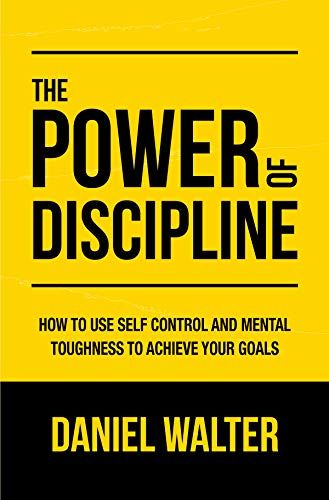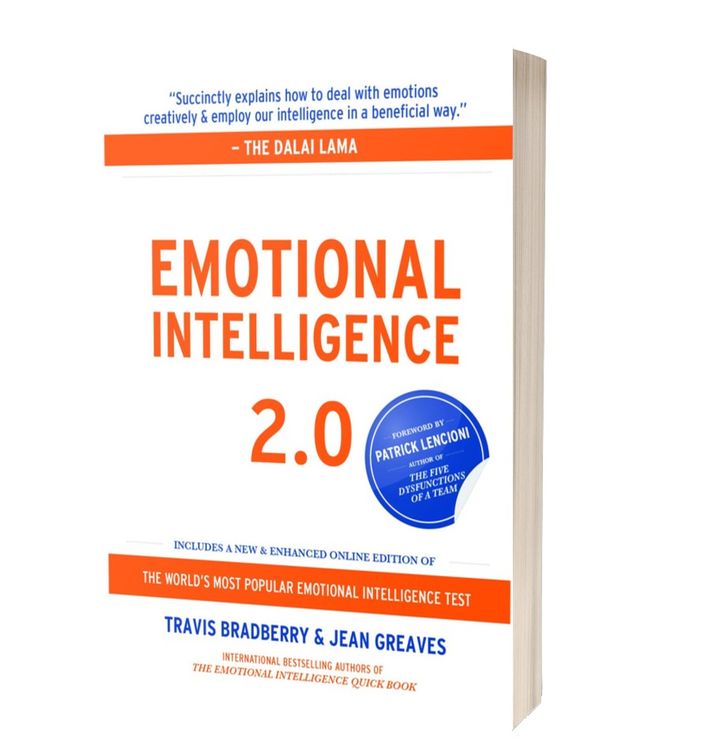Content Summary
In a world where emotions play a vital role in our interactions and well-being, emotional intelligence (EQ) stands as a crucial skill set. Emotionally intelligent individuals possess the ability to understand, manage, and navigate their own emotions and effectively connect with and respond to the emotions of others.
In this article, we explore the significance of emotional intelligence, its components, and how cultivating EQ can bring about positive transformations in various aspects of life.
Understanding Emotional Intelligence
Emotional intelligence refers to a collection of skills that revolve around self-awareness, self-regulation, social awareness, and relationship management. It involves the ability to recognize, understand, and appropriately express emotions, as well as the capacity to perceive and respond to the emotions of others.
By honing these skills, individuals can develop greater emotional resilience, stronger interpersonal relationships, and improved overall well-being.
The Components of Emotional Intelligence
Self-Awareness: Self-awareness forms the foundation of emotional intelligence. It involves recognizing and understanding one's own emotions, strengths, weaknesses, values, and beliefs. Self-aware individuals are in tune with their emotions and can accurately identify how their feelings influence their thoughts and behaviors.
Self-Regulation: Self-regulation refers to managing and controlling one's emotions and impulses. It involves maintaining emotional balance, adapting to changing circumstances, and responding to triggers in a constructive manner. Individuals with strong self-regulation skills can think before acting and make well-informed decisions.
Social Awareness: Social awareness is about perceiving and understanding the emotions and perspectives of others. It involves empathizing with others, actively listening, and demonstrating a genuine interest in their well-being. Socially aware individuals create safe and inclusive spaces for open communication and collaboration.
Relationship Management: Relationship management encompasses building and maintaining healthy and meaningful connections. It involves effective communication, conflict resolution, teamwork, and the capacity to inspire and influence others positively. Skilled relationship managers prioritize empathy, trust-building, and the cultivation of strong interpersonal bonds.
Benefits of Emotional Intelligence
Cultivating emotional intelligence can bring numerous benefits to personal and professional life:
Enhanced Self-Understanding: Emotional intelligence fosters self-awareness, enabling individuals to better understand their emotions, motivations, and behaviors. This self-understanding leads to increased self-confidence and a greater sense of authenticity.
Improved Communication: Emotional intelligence enhances communication skills, including active listening, effective expression of emotions, and empathetic understanding. This leads to more meaningful and authentic connections with others.
Stronger Relationships: Individuals with high emotional intelligence excel at building and maintaining positive relationships. They have the ability to understand and respond to the emotions of others, resulting in stronger bonds based on trust, respect, and empathy.
Conflict Resolution: Emotional intelligence equips individuals with the skills to navigate and resolve conflicts constructively. By managing emotions and understanding different perspectives, emotionally intelligent individuals can find mutually beneficial resolutions.
Effective Leadership: Emotional intelligence is a hallmark of effective leadership. Leaders with high EI are skilled at inspiring, motivating, and influencing others. They create inclusive environments that foster collaboration and encourage the personal and professional growth of their team members.
Developing Emotional Intelligence
Developing emotional intelligence is a lifelong journey that requires ongoing effort and self-reflection. Some strategies to enhance EI include practicing self-awareness through journaling and self-assessment, seeking feedback from others, engaging in mindfulness and meditation practices, and actively practicing empathy and active listening in interpersonal interactions.
Most FAQs about Emotional Intelligence:
What is Emotional Intelligence?
Emotional intelligence (EI) refers to the ability to recognize, understand, and manage one's own emotions and effectively navigate and respond to the emotions of others. It involves a set of skills that contribute to emotional awareness, empathy, self-regulation, and effective interpersonal relationships.
What are the Five Characteristics of Emotional Intelligence?
The five characteristics of emotional intelligence, as outlined by renowned psychologist Daniel Goleman, are as follows:
Self-Awareness: Self-awareness is the foundation of emotional intelligence. It involves recognizing and understanding one's own emotions, strengths, weaknesses, values, and beliefs. Individuals with self-awareness deeply understand their emotions and how they impact their thoughts, behaviors, and interactions with others.
Self-Regulation: Self-regulation refers to the ability to manage and control one's own emotions, impulses, and reactions. It involves exercising self-control, adapting to changing circumstances, and maintaining emotional balance. Individuals with self-regulation skills can think before acting, manage stress effectively, and respond to situations in a calm and thoughtful manner.
Social Awareness: Social awareness, also known as empathy, is the capacity to perceive and understand the emotions and perspectives of others. It involves being attuned to the emotions expressed by others, demonstrating empathy, and showing a genuine interest in their well-being. Socially aware individuals possess strong listening skills, are attentive to non-verbal cues, and can navigate social dynamics with sensitivity and understanding.
Relationship Management: Relationship management encompasses building and maintaining healthy and meaningful relationships. It involves effective communication, conflict resolution, teamwork, and the capacity to inspire and influence others positively.
Individuals with strong relationship management skills are adept at building rapport, fostering collaboration, and managing emotions in social interactions.
Self-Motivation: Self-motivation is the ability to harness one's emotions to drive personal achievement and self-improvement. It involves setting goals, maintaining a positive attitude, and persevering in the face of challenges. Individuals with self-motivation can bounce back from setbacks, stay focused, and work towards their aspirations with resilience and determination.
These five characteristics of emotional intelligence work harmoniously to promote self-awareness, effective self-regulation, understanding of others, and cultivating healthy relationships.
By developing these skills, individuals can enhance their emotional well-being, improve their interpersonal interactions, and navigate the complexities of life with greater empathy and success.
How to Build Emotional Intelligence?
Building emotional intelligence is a process that requires self-reflection, practice, and a commitment to personal growth. Here are some strategies to help you develop and strengthen your emotional intelligence:
Increase Self-Awareness:
Practice mindfulness: Engage in activities such as meditation or deep breathing exercises to enhance self-awareness and focus on the present moment.
Reflect on your emotions: Regularly check in with yourself and identify your emotions. Explore their triggers, patterns, and how they influence your thoughts and behaviors.
Seek feedback: Ask trusted friends, family members, or colleagues for honest feedback about your strengths and areas for improvement. Use their insights to gain a better understanding of yourself.
Develop Self-Regulation:
Identify your emotional triggers: Pay attention to situations or events that tend to elicit strong emotional responses. Develop strategies to manage and regulate your emotions in those moments, such as deep breathing, taking a pause, or reframing your thoughts.
Practice impulse control: Develop the ability to pause and think before reacting impulsively. Consider the potential consequences of your actions and choose a response that aligns with your values and long-term goals.
Manage stress effectively: Explore stress management techniques such as exercise, relaxation exercises, or engaging in hobbies and activities that help you unwind and recharge.
Cultivate Social Awareness:
Practice active listening: Truly listen to others with an open mind and without judgment. Pay attention to both verbal and non-verbal cues to understand their emotions, needs, and perspectives.
Develop empathy: Put yourself in others' shoes and try to understand their experiences, emotions, and challenges. Cultivate compassion and show genuine care and understanding towards others.
Expand your cultural awareness: Seek opportunities to learn about different cultures, backgrounds, and perspectives. This can enhance your ability to relate to and understand individuals from diverse backgrounds.
Enhance Relationship Management:
Improve communication skills: Practice clear and effective communication, both verbal and non-verbal. Use active listening, assertiveness, and empathy to foster understanding and healthy dialogue.
Develop conflict resolution skills: Learn and practice techniques for resolving conflicts constructively, such as finding common ground, seeking win-win solutions, and focusing on effective communication rather than blame.
Nurture positive relationships: Invest time and effort in building and maintaining meaningful connections. Show support, express appreciation, and engage in acts of kindness that strengthen your relationships.
Foster Continuous Learning and Growth:
Seek self-improvement opportunities: Attend workshops, read books, or take courses on emotional intelligence, communication skills, or self-development. Continuously seek knowledge and strategies to enhance your emotional intelligence.
Reflect and learn from experiences: Regularly reflect on your interactions and experiences, identifying areas for growth and improvement. Learn from both successes and challenges to refine your emotional intelligence skills.
Remember that building emotional intelligence is a gradual process. Be patient and compassionate with yourself as you navigate your journey. By committing to self-awareness, practicing self-regulation, developing social awareness, managing relationships effectively, and nurturing continuous growth, you can cultivate and strengthen your emotional intelligence over time.
Do Emotional Intelligent People Live Happier?
Yes, research suggests that there is a positive correlation between emotional intelligence and happiness. While emotional intelligence is not a guarantee of happiness, it provides individuals with valuable skills and perspectives that can contribute to overall well-being.
By developing emotional intelligence, individuals can cultivate a deeper understanding of themselves and others, navigate relationships effectively, and approach life's challenges with greater resilience and positivity, ultimately fostering a greater sense of happiness and fulfillment.
Author's Choice of Self-Empowering Thinking Tools:



Conclusion
Emotional intelligence is a vital skill set that empowers individuals to navigate the complexities of emotions, build meaningful relationships, and thrive in personal and professional realms.
By fostering self-awareness, self-regulation, social awareness, and relationship management, individuals can unlock their emotional intelligence potential and experience greater fulfillment, understanding, and success in all areas of life.
Embracing emotional intelligence is a powerful step towards personal growth and fostering a more empathetic and compassionate world.
Stay Focused on the Present and Be Happy!
Relevant Reads>>>













